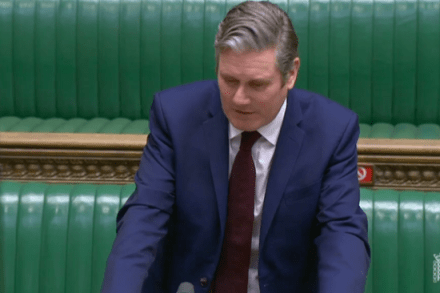Starmer’s Jesus House apology is an insult
‘Some Christians believe homosexuality is a sin — get over it.’ I feel like this needs to be made into a poster. Or put on the side of a bus, perhaps. Because, amazingly, there are people out there who seem not to realise that traditionally minded Christians think it is wrong for a man to lie with a man as he would with a woman. Consider the mad controversy over Keir Starmer’s visit to Jesus House in London on Good Friday. Jesus House, in Brent, is part of the Redeemed Christian Church of God, a Pentecostal ‘megachurch’ founded in Nigeria in the 1950s. It has a large following among traditionalist




















